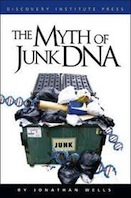 Intelligent Design
Intelligent Design
Perspectives on ENCODE and Junk DNA
 As most ENV readers are aware, the scientific blogosphere has been abuzz in recent weeks over the recently published ENCODE results.
As most ENV readers are aware, the scientific blogosphere has been abuzz in recent weeks over the recently published ENCODE results.
Since the announcement of these findings (which I noted briefly here at the time), I have been closely following the ongoing discussion. I have also since then had the chance to delve somewhat into the “flagship” Nature publication. The primary criticism of the results relates to ENCODE’s seemingly rather loose definition of “function.” For our own purposes, as ID theorists and advocates, we understand DNA elements to be “functional” if they confer some kind of positive phenotypic benefit to the host. The scientists behind ENCODE, however, seem to have understood “functional DNA” to include any stretch of DNA that harbors any kind of detectable chemical activity.
These criticisms of the 80% figure seem to me to have some merit. The original paper states,
The Encyclopedia of DNA Elements (ENCODE) project has systematically mapped regions of transcription, transcription factor association, chromatin structure and histone modification. These data enabled us to assign biochemical functions for 80% of the genome, in particular outside of the well-studied protein-coding regions.
The debate thus hinges on whether activity such as transcription, transcription factor association, and histone modification are signs of true function. My own view is that such activity is suggestive of functionality, but not proof. Therefore I would be cautious about claiming that these results show 80% of the genome to have function in the sense that we normally use that word.
On the other hand, the observation that the genome is buzzing with activity underscores what proponents of ID have been saying for years: not knowing what something does doesn’t constitute evidence that it’s doing nothing. Moreover, it wasn’t long ago that Laurence Moran and PZ Myers were telling us that the genome is not even pervasively transcribed and that this amounted to evidence that the majority of our DNA is junk.
